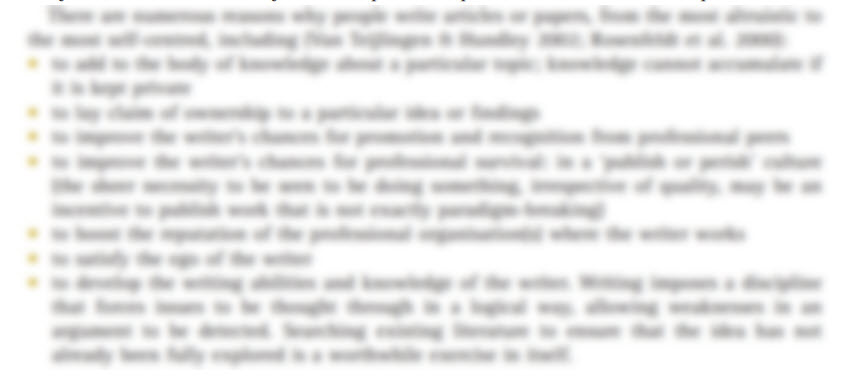If you are considering signing up for a writing workshop, at the very least you will receive a course overview or outline, a statement of what you will get out of the workshop and what to bring. Once the workshop starts, you will then be taken on a series of educational steps to achieve predetermined learning goals. This is the case for both online and face-to-face workshops. While the facilitator will do their best to help you learn, there are important tasks you need to do before, during and after the workshop that will enhance your learning and ensure permanent improvements in writing skills. In my thirteen years’ experience of running over 150 face-to-face writing workshops, I have observed how many different people approach the task of learning. Here are ten ways to get the most out of a face-to-face writing workshop.
Before the workshop starts:
1. List your learning goals
Why do you want to do a writing workshop? What do you want to achieve? How does your writing need improvement? If you are not clear on the answers to some of these questions then consider how productive and enjoyable you find the task of writing. List any stages in the process of writing where you lack confidence or initiative. When you start and continue through the workshop, you will find that you will gain a deeper understanding of what areas need improvement and how to improve.
2. Consider your motivation for attending the workshop
Within my workshops, I find that the largest proportion of people are self-motivated, aware that their writing needs to improve and are keen to learn whatever they can. Then there are some who are happy with their writing but want to brush up on their skills and pick up new perspectives and extra tips. With many In-House workshops, there will be an entire team expected to attend, including some people who are confident and capable writers yet still content to brush-up their skills. Then (very rarely) there are those who are happy with their writing, are instructed to attend by a boss or supervisor but really don’t want to be there. If you really do not want to attend a writing workshop, the facilitator would probably prefer you were not there either. If you are a supervisor reading this, avoid forcing staff to attend if they indicate they don’t want to. Having people in a workshop who don’t want to be there can make it hard for others to learn and reduce the engagement of the entire group. Even worse is a recalcitrant attendee.
If, at any time, you change your mind about staying and completing a workshop and need to leave, then leave. You can always quietly excuse yourself without any disruption.
3. Come prepared
Triple-check the date
It is incredibly easy to get dates wrong.
Read the pre-workshop information at least a week before the workshop
Thoroughly read everything that is given to you prior to the workshop. There may be important information that will help you get the most out of the workshop; for example, you might be asked to bring a summary of your project for a writing exercise. If you only realise this the day before, you may not be adequately prepared to get the most out of the workshop.
Email questions beforehand
If you have any questions at all relating to the workshop, ask them. If you know what to expect, you will learn more easily.
Bring a printout of pre-workshop information
Bring along any pre-workshop information provided for you, including the address of the venue. You would be surprised how many people forget to do this.
You can download my Writing Workshop Preparation checklist here.
4. Complete any pre-workshop surveys or writing tasks
Completing surveys can seem tiresome, a waste of your time or not much fun; you might not be sure how you will directly benefit from completing a pre-workshop survey. As a facilitator, I cannot emphasise enough how important it is to know, beforehand, what people want to get out of the workshop. Understanding your science background and writing challenges and reviewing your questions before the workshop starts allows for the best preparation for teaching. The more prepared a facilitator is, the more you will get out of the workshop. Even if you mention topics that won’t be covered in the specific workshop you are attending, the facilitator might be able bring along extra resources to help you.
If you are invited to submit a sample of your writing or complete a pre-workshop writing task, do it. Getting direct feedback on your writing is invaluable and writing immediately before a workshop can help you identify what you want to get out of the workshop. Submitting samples after the workshop is not productive as the opportunity to discuss and learn throughout the workshop is lost.
5. Don’t be late or just on-time: arrive early
If you are late you will likely miss crucial introductory information that cannot be repeated. I no longer wait for late-comers, even if I receive a text from someone saying they are running ten minutes late. While it is good to know that people are still coming, waiting for late-comers disrespects the efforts of those who have gone out of their way to arrive early. Strictly honouring the start time also creates a clean and industrious atmosphere for everyone present.
Triple-check the starting time
Events don’t always start at 9 am and you might be asked to arrive 15 minutes before the start time.
Aim to be 15-20 minutes early instead of on-time
If you aim to get to an any event early and there are road closures, lift faults or random buckets of hail, you still might arrive on time. Aiming to get anywhere on time, especially if you live in an Australian capital city, is optimistic. If you do arrive early, you will have time to settle in and meet other workshop participants before you start.
It’s never ok to be purposely late
Never assume that it’s ok to be late or that the facilitator will wait for you before they start. Those people who can turn up to a workshop 20 minutes late without sweating or looking stressed have probably practised the art of arriving late. I expect the habitual late-comer thinks this way: “It says an 8.45 am start, but they only say that to allow for late comers, which means they will really start at 9.00 am and even then, there will just be 10-15 minutes of an informal welcome and chat and they probably won’t actually start until 9.15.”
If you are unavoidably late or unable to attend at all, text or email the facilitator.
During the workshop:
6. Participate: ask questions and make comments
We learn by listening, thinking and doing. We also learn by working out what we don’t know. In any workshop environment, those who readily ask questions and make comments add immense benefit to the learning atmosphere as their participation encourages others to also engage by asking questions and in making comments. If you don’t understand something, ask for clarification. Asking questions is the most important thing that you can do during a workshop.
Some people are worried that their question will be out of place, not immediately relevant, mundane or too obvious. Don’t worry; invariably others will also want to know the answer to your question. A good facilitator will answer all kinds of questions and place the answers in context to the workshop topic. Facilitators also use questions as opportunities to reinforce important principles.
If you don’t understand something and want it repeated, ask. If your mind wandered and you missed what you thought was a crucial point, ask for it to be repeated. Don’t worry if you feel you are the only person that doesn’t get something; even if that were true that’s ok. You are there to learn. If you want to know how a principle might be applied in different circumstances, ask. If you think a suggestion might not work in your circumstance, say so. Your comments might open up a fruitful discussion with other attendees.
Don’t worry if you feel a bit shy or nervous about asking questions, ask anyway. The facilitator aims to ensure that everyone in the workshop feels comfortable and is able to participate. Remember that attending a workshop is not a performance; experienced facilitators will ensure that you will not be judged or criticised or made to do anything you don’t want to do.
However, avoid dominating the workshop with too many questions or comments
Try to avoid taking centre stage too often as you may inadvertently prevent others from participating. A good facilitator will help balance the participation efforts of different people throughout the course of the workshop.
7. Answer questions
As a facilitator, I find that one of the best ways to deliver an important teaching principle is to phrase it as a question. If the facilitator asks you a question, try to answer it even if you are just guessing. Having 2-3 people answering a question is a lot more interesting than silence. Occasionally, facilitators will throw open a question from someone to the entire workshop to see what different answers or perspectives might arise.
8. Ensure you are physically comfortable
Some people find it difficult to sit for an hour, or even for 20 minutes. If you need to stand up for a while, stand up. No one is going to mind. Ask for an extra short break if you feel one is needed. Always bring a jacket to account for unresponsive air-conditioners.
9. Take notes
This may seem an obvious piece of advice but some people think that they don’t need to take notes if they are given lecture handouts. Even if you never read your notes again, the act of taking notes reinforces your learning and helps you to focus on what you consider are the most important points.
After the workshop:
10. Review your notes and resources
After the workshop, review the notes you took and the handouts and resources provided by the facilitator. List the most important things that you learned from the workshop and think about what you need to do next. Create your own checklists to help you remember what you have learned. If you have the opportunity, email the facilitator with further questions. Aim to review your training notes with 1-2 weeks after the workshop to help reinforce what you have learned. Also aim to review your writing before and after the workshop and look for improvements in your writing. Itemise any areas that may need further training and investigate what resources there are to help you with your next stage of learning.
Any suggestions or comments please email info@writingclearscience.com.au
SUBSCRIBE to the Writing Clear Science Newsletter to keep informed about our latest blogs and writing workshops.
© Dr Marina Hurley 2018 www.writingclearscience.com.au
FURTHER READING
- Handwriting notes and to-do lists is still a good idea
- How to build and maintain confidence as a writer
- How low-confidence can reduce the quality of your writing
- The essentials of science writing: identify your target audience
- The essentials of science writing: plan before you write
- The essentials of science writing: What is science writing?
- 8 steps to writing your first draft
- Two ways to be an inefficient writer
- Work-procrastination: important stuff that keeps us from writing
Find out more about our new online course...
Now includes feedback on your writing Learn more...







